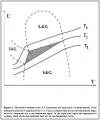
Computational Thermodynamics
by Johan Hoffman, Claes Johnson
2012
Number of pages: 238
Description:
The book develops a new computational foundation of thermodynamics based on deterministic finite precision computation without resort to statistics. In particular a new 2nd Law without the concept of entropy is proved to be a consequence of the 1st Law and finite precision computation.
Download or read it online for free here:
Download link
(39MB, PDF)
Similar books
 Thermodynamics and Statistical Mechanics: An intermediate level course
Thermodynamics and Statistical Mechanics: An intermediate level courseby Richard Fitzpatrick - Lulu.com
Set of lecture notes for an upper-division thermodynamics and statistical mechanics course. Covered topics are classical thermodynamics, the thermodynamics of the atmosphere, heat engines, specific heat capacities of gases and solids, etc.
(20490 views)
 The Physics and Mathematics of the Second Law of Thermodynamics
The Physics and Mathematics of the Second Law of Thermodynamicsby Elliott H. Lieb, Jakob Yngvason - arXiv
The essential postulates of classical thermodynamics are formulated, from which the second law is deduced as the principle of increase of entropy in irreversible adiabatic processes that take one equilibrium state to another.
(14851 views)
 Statistical Thermodynamics and Rate Theories
Statistical Thermodynamics and Rate Theories- Wikibooks
A textbook on statistical thermodynamics at the senior undergraduate level. The course covers the statistical thermodynamics of ideal gases from quantized energy levels. Applications on gas reaction kinetics and kinetic theory of gases are included.
(5726 views)
 Lecture Notes on Thermodynamics and Statistical Mechanics
Lecture Notes on Thermodynamics and Statistical Mechanicsby Daniel Arovas - University of California, San Diego
Contents: Probability 2. Thermodynamics 3. Ergodicity and the Approach to Equilibrium 4. Statistical Ensembles 5. Noninteracting Quantum Systems 6. Classical Interacting Systems 7. Mean Field Theory of Phase Transitions 8. Nonequilibrium Phenomena.
(11091 views)